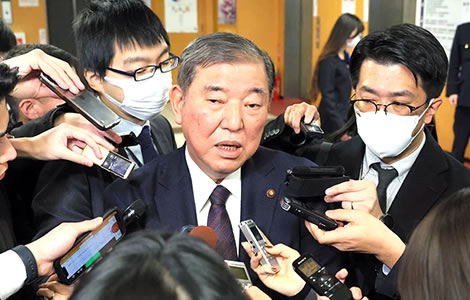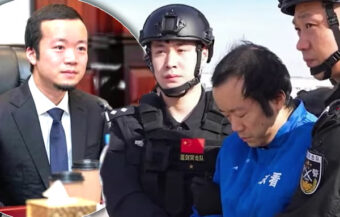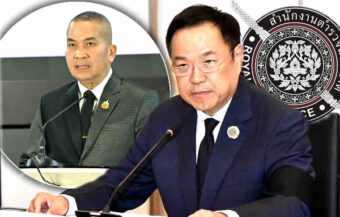Shigeru Ishiba, Japan’s incoming prime minister, aims to create an Asian NATO. This move raises questions for Thailand, a U.S. ally, as it navigates its ties with China and the shifting geopolitical landscape.
Japan is to have a new prime minister in October. On Friday, 67-year-old Shigeru Ishiba won a hard-fought election contest to lead the Liberal Democratic Party (LDP) and assume the mantle. Certainly for Thailand and foreign policy makers in Bangkok, the incoming Japanese PM’s plans for an Asian NATO will herald a definite shift to a more polarised state of affairs in the region. Clearly, it will put pressure on Thailand’s balancing act between the two powers, the United States and China. Significantly, Thailand is a U.S. military ally, and that status will, in particular, be under the microscope if a new security alliance is formed.

Shigeru Ishiba, a seasoned politician and former defence and agriculture minister, has won the leadership of Japan’s ruling Liberal Democratic Party (LDP).
As a result, he will become Japan’s next prime minister, succeeding Fumio Kishida after a parliamentary vote on October 1.
His election marks a significant shift in Japan’s political and defence policies, with Ishiba known for his hawkish stance on China and plans to deepen Japan’s security ties in the region.
A Victory for Japan’s “China Hawk”
Ishiba’s election is seen as a victory for those within the LDP who want to strengthen Japan’s defence capabilities. He is a strong advocate of creating an “Asian NATO” to counter China’s growing influence in the region.
This proposed alliance could involve key U.S. allies such as South Korea and the Philippines, and comes at a time when the U.S. is reinforcing its presence in Asia.
Ishiba, 67, has long pushed for a more balanced defence relationship with the United States. He has proposed shared access to U.S. military bases in Japan and greater independence in foreign policy matters. His win followed a highly competitive leadership race with nine candidates, reflecting the growing debate over Japan’s future in global security.
Economic Reforms on the Agenda
In addition to his defence focus, Ishiba inherits an economy facing both opportunities and challenges.
Japan is emerging from years of deflation, but its ageing and shrinking population poses serious economic concerns. During his campaign, Ishiba highlighted the need for companies to shoulder more of the tax burden and hinted at reforms to boost wages and combat rising prices.
Speaking at a press conference on Friday evening, Ishiba emphasised the “great anxiety” of ordinary Japanese citizens, particularly the fear of returning to deflation. He is expected to introduce an economic package aimed at promoting wage growth and managing inflation before the year’s end.
Although Ishiba has pushed for some reforms, analysts believe his economic policies will not differ significantly from those of outgoing Prime Minister Fumio Kishida. Katsuhiko Aiba, chief economist at Citi, expects Ishiba to follow Kishida’s economic approach, while implementing policies to address Japan’s aging workforce and rising living costs.
Regional and Global Implications
Ishiba’s plan for an “Asian NATO” could significantly alter the region’s geopolitical landscape. As Japan strengthens its military, China’s growing assertiveness in the South China Sea and the Taiwan Strait has raised concerns among Western allies.
The United Kingdom, too, has been increasing its engagement in the Asia-Pacific, which aligns with Japan’s regional security goals.
Maris at BRICS Summit in Russia insists unaligned Thailand is friends with all despite 1954 US pact
For countries like Thailand, Ishiba’s focus on security has direct implications. Thailand is a long-standing U.S. military ally. Meanwhile, it must deftly navigate its close economic ties with China and its security obligations to the West.
Ishiba’s proposed military alliance may challenge Thailand’s balancing act between the two superpowers.
Japan is also Thailand’s largest inward investor and a critical economic partner. With a potential “Asian NATO” in the works, Thailand may need to re-evaluate its position in regional politics.
A New Era for Japan’s Security
Ishiba’s security priorities include enhancing Japan’s defence capabilities to meet new global challenges. Yu Uchiyama, a political scientist at Tokyo University, suggests that while Ishiba’s leadership may present a fresh image, his policies will likely continue Japan’s current defence trajectory.
“Faced with a changing world order, Ishiba will take over Kishida’s defence policies, so there should be no significant differences,” Uchiyama said.
Ishiba’s campaign emphasised Japan’s need to play a more proactive role in maintaining peace in the region. Presently, he has not yet provided detailed plans for specific changes to Japan’s defence strategy. Nonetheless, his hawkish stance on China suggests that Japan will continue to expand its military presence.
A Legacy of Reforms
One of Ishiba’s most notable proposals is the creation of a full-fledged ministry to handle disaster management. Japan, frequently struck by earthquakes, floods, and other natural disasters, has long needed a more centralised approach to disaster response.
Ishiba’s focus on this issue sets him apart from his predecessor. Indeed, this initiative may be one of the key features of his administration.
In a long career in politics, Ishiba has often been seen as an outspoken figure. For instance, he has previously been unafraid of challenging his own party.
His victory comes after five attempts at securing the LDP leadership. Throughout his career, he has been known for his intellectual approach. At the same time, interests in trains and military vehicles has earned him the label of an “otaku,” or geek.
A Narrow Win in a Competitive Race
Ishiba’s win came at the expense of Sanae Takaichi. Certainly, she is a hardline conservative who would have been Japan’s first female prime minister. In a runoff vote, Ishiba secured 215 votes to Takaichi’s 194.
The contest was highly competitive, with candidates from across the political spectrum vying for control of the LDP.
Earlier in the day, Shinjiro Koizumi, the son of former Prime Minister Junichiro Koizumi, was eliminated. This came in the first round of voting. Koizumi, who had the potential to become Japan’s youngest prime minister, was narrowly favoured by political analysts.
Join the Thai News forum, follow Thai Examiner on Facebook here
Receive all our stories as they come out on Telegram here
Follow Thai Examiner here
Further reading:
Maris at BRICS Summit in Russia insists unaligned Thailand is friends with all despite 1954 US pact
Thai Defence Minister speaks of a ‘golden land’ seeking to act only for peace in the Indo-Pacific
China’s Embassy calls on Thai media to censor its coverage of Taiwan to protect relationships
War with China is a rising spectre that must be confronted as US General predicts conflict by 2025
Bad news from Beijing with Xi’s rise, the prospect of war and a divided world have greatly grown
Abe’s legacy will be his efforts to awaken Japan and build a defensive alliance against China
Former Pheu Thai finance minister expresses unease about US regional moves to counter China’s rise
Prayut unveils 3 ‘R’ strategy for a deeper and broader partnership with the US on the economy


















